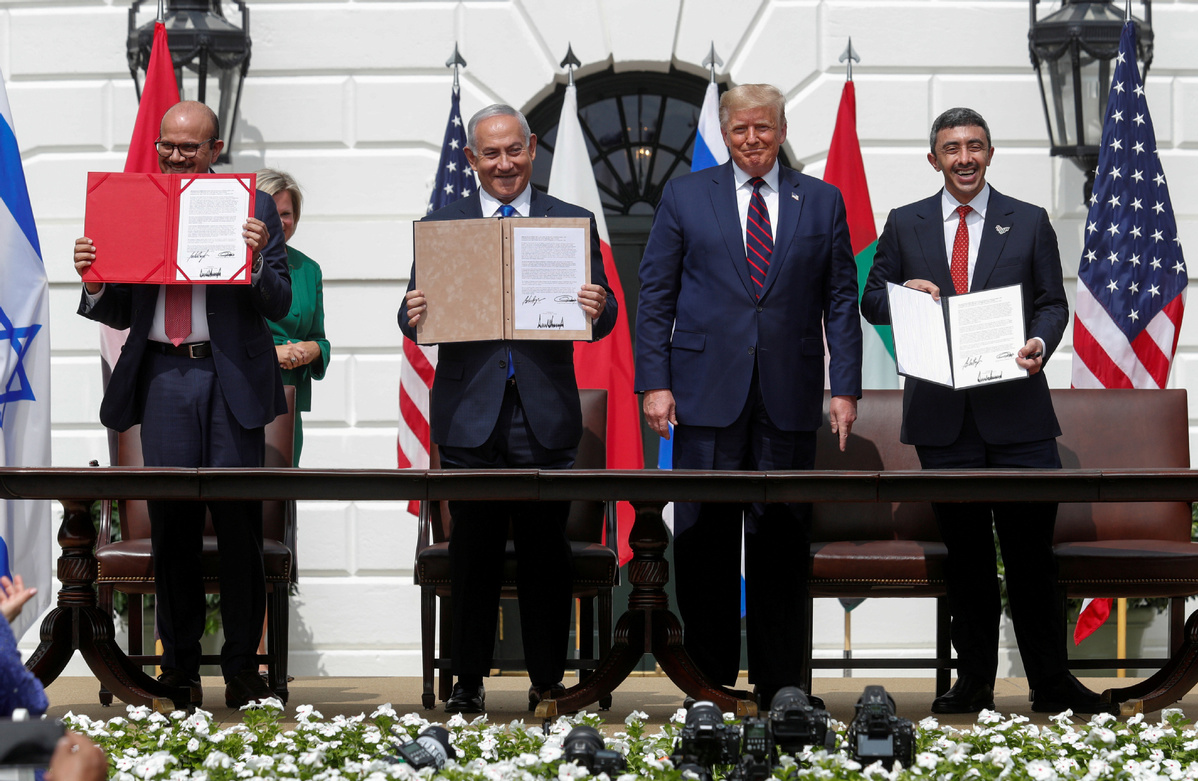'Peace deals' don't serve that purpose: China Daily editorial
chinadaily.com.cn | Updated: 2020-09-17 20:22

In the presence of the US president, the Israeli prime minister and the foreign ministers of the United Arab Emirates and Bahrain signed agreements that formalized the normalization of their relations on Tuesday.
The three-way agreements formally make the UAE and Bahrain the third and the fourth Arab nations to officially recognize Israel after Egypt and Jordan. No doubt, Israeli Prime Minister Benjamin Netanyahu will win political credit for cultivating a less hostile external environment for the country, but that does not mean the world is now closer to achieving peace in the Middle East, since the common ground they have built the agreements on is opposition to Iran.
The United States, President Donald Trump in particular, may emerge as the biggest winner in the latest development as he is keen to showcase his foreign policy achievements ahead of the presidential election in the US, and the agreements help reinforce the hard line he has taken against Iran and may gain him the support of pro-Israel voters.
But although he may now have more political capital to flaunt during his campaign, as he can keep saying that the "Deal of the Century", released in January, is really working in the Middle East. The US road map for the region is anything but good.
The US has always sided with its ally in the region. From the relocation of the US embassy to Jerusalem in 2018 to the "Deal of the Century", the Trump administration has repeatedly dimmed any hopes of any progress being made in the Middle East peace process by favoring Israel.
The new accords, which Trump touted as "peace deals" and "the dawn of a new Middle East", have elicited different responses from Arab countries, with Palestinian officials calling for escalating the resistance against Israel in the Palestinian territories.
The Arab League reiterated its support for Palestinians by stressing that the developments would not impact the Arab consensus over the inevitability of ending the Israeli occupation of Palestinian territories as an essential condition for achieving comprehensive justice and peace in the Middle East.
However, with two more Arab countries normalizing their relations with Israel, the US and Israel have successfully managed to sow the seeds of disunity in the region.
While more friendly accords in this highly combustible region should be something to celebrate, a more divided Arab world, plus a road map for peace that favors one party in the conflict, augur more volatility and, as such, the Middle East peace process will encounter more uncertainties and obstacles.
If you have a specific expertise and would like to contribute to China Daily, please contact us at opinion@chinadaily.com.cn , and comment@chinadaily.com.cn
























